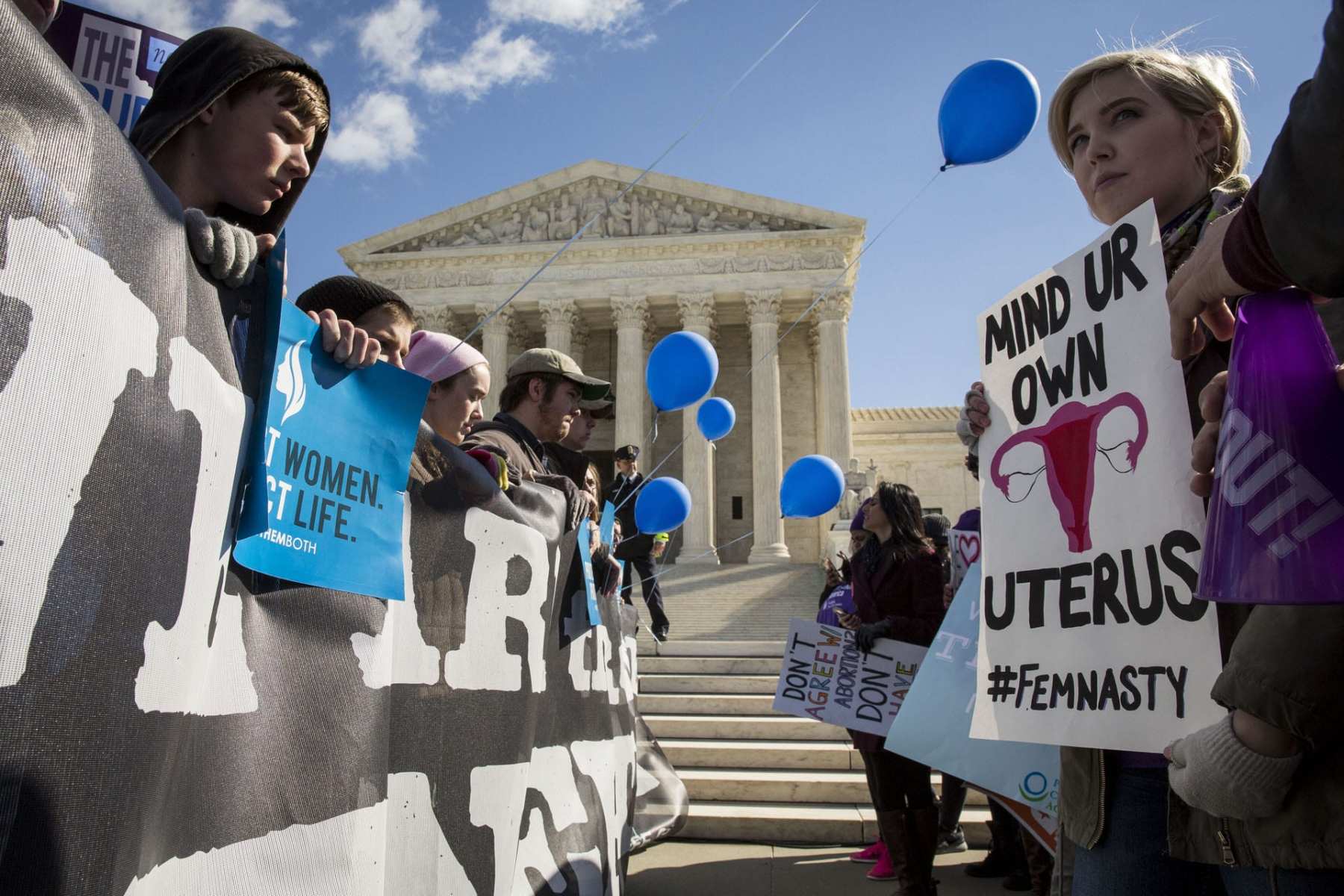A lower court’s decision could set the stage for the U.S. Supreme Court to weigh in on abortion access, opening the door for the conservative-majority court to take on Roe v. Wade, the landmark case that guaranteed the constitutional right to an abortion.
In a ruling issued last week, the U.S. Court of Appeals for the 6th Circuit upheld an Ohio ban on abortions if a genetic test indicated the fetus had Down syndrome. The court, which upheld a similar restriction in Tennessee last fall, argued that the ban did not create a substantial obstacle for people seeking an abortion.
But the ruling contradicts a different appeals court’s decision earlier this year, which blocked a comparable ban in Arkansas.
Such a divide typically increases the odds that the high court will hear a case. Already, the Arkansas attorney general has asked the Supreme Court to weigh in on the state’s restriction, known as a “reasons ban.” It could be a watershed moment, legal experts say, with the court potentially hearing a case as early as this October, when the next Supreme Court term begins.
The Supreme Court is famously unpredictable, and there is no guarantee it will take on an abortion case next term. But if it does, many observers believe that the current court makeup — with six conservative members, including three justices appointed by former President Donald Trump — means that any ruling on abortion is likely to support enhanced restrictions and threaten the rights enshrined by Roe v. Wade almost 50 years ago.
“If they uphold this ban, they would be making it so easy to restrict abortion that it could open the door to a full ban,” said Priscilla Smith, a clinical lecturer and associate research scholar at Yale Law School, who has written extensively about abortion law.
Currently, federal abortion rights are primarily governed by two federal cases. Roe v. Wade found that the U.S. Constitution protected the right to an abortion without excessive government regulation, up until a fetus can survive outside the womb, around 24 weeks of gestation. In 1992’s Planned Parenthood v. Casey, the court held that states could impose some restrictions but ruled that they could not constitute an “undue burden” for someone seeking an abortion.
Trump promised to nominate only Supreme Court justices who would undo those protections. But the court’s nine justices have not yet weighed in on abortion rights, despite ample opportunity to do so.
Since last fall, the court has been considering whether to hear a case out of Mississippi that would address whether the state can legally ban all abortions after 15 weeks of gestation. The case would likely take aim at the very heart of Roe v. Wade, since a 15-week ban falls well before any definition of fetal viability.
The Supreme Court has not agreed to hear the case, but it has also not sent it back to lower courts. The indecision has left experts speculating that justices may be divided over whether to take on a case that could put the political spotlight so firmly on the court, since a 15-week ban more overtly and obviously raises questions about the constitutional right to an abortion. But the fact that the court has not specifically declined to take on the case, many note, suggests there is still some interest in weighing in on abortion — the question is just which case.
“I don’t know what to make of the court’s failure to act on the Mississippi case,” said Jessie Hill, an associate dean at Case Western School of Law, who argued in court against the Ohio ban. “It’s hard not to see some reticence.”
But the politics are complex, as abortion opponents cheer on the possibility of a looming court ruling, while progressives — spooked by the court’s rightward tilt in recent years — are pushing to increase the number of justices, giving President Joe Biden the chance to nominate more liberal members.
Some legal experts suggest the fear of liberal backlash to a more restrictive abortion ruling — especially if Biden more seriously considers court expansion — could deter the sitting justices from taking on any such case.
The pile-up of contradictory lower court rulings on reasons bans, though, could change the picture. Because these laws address the question of one specific type of ban, rather than the protection of abortion in general, some believe the court may be more willing to take on the issue.
“Is it less directly a challenge to Roe? I think the answer is yes,” said Carol Sanger, a professor at Columbia Law School who studies abortion law.
But if the court does find in favor of these specific state restrictions, some analysts argue the implications could still be significant — both for bans like these, and for the future of abortion jurisprudence.
At least five states have laws banning abortion if the fetus is determined to have Down syndrome, which is typically detected in the first 10 to 13 weeks of pregnancy. Four of these state bans (including in Ohio and Arkansas) have been temporarily blocked by a court order. Indiana’s ban — passed in 2016 — had been permanently blocked by an appeals court, and the Supreme Court two years ago declined to weigh in on the case.
A ruling upholding the Arkansas ban could spur more states to adopt this kind of restriction, said Elizabeth Nash, who tracks state policy for the Guttmacher Institute, an research organization that tracks reproductive health policies and supports abortion rights, but whose data is commonly cited by people across the political spectrum.
“The issue is still one that’s receiving legislative attention. It’s still one where there are state legislatures moving these bills,” Nash said.
Some experts argue such a ruling would clear a pathway for laws that ultimately undo abortion rights.
If the court allows this one type of ban on abortions before the fetus is viable, Smith said, other such bans could follow, as long as a state declares that it has a compelling reason behind the law. That would ultimately weaken the legal standard protecting someone’s right to an abortion — setting up a ruling in contradiction with Roe v. Wade, even if the full impact is not immediately clear.
At the very least, Smith said, even if the court did not rule against the right to an abortion, upholding the bans could create an easier legal route for states to pass more restrictions. That could mean states passing laws banning entire categories of abortion before fetal viability — such as those performed through dilation and evacuation or through medication — and the court now finding an easier path to rule in favor of those laws.
“What they would really be doing would be laying the groundwork for states to ban abortions entirely. In the next case that comes up, the court could say, ‘Well, yes we can uphold it, because we said states can restrict an abortion if they have a good reason,’” Smith said. “At that point, the state’s rationale can be almost anything.”






